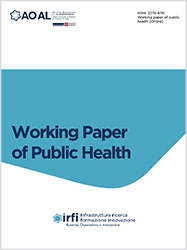Assessment and treatment of emotional-behavioral disorders after traumatic brain injury (Cranial Encephalic Trauma): literature review and psychological interventions

All claims expressed in this article are solely those of the authors and do not necessarily represent those of their affiliated organizations, or those of the publisher, the editors and the reviewers. Any product that may be evaluated in this article or claim that may be made by its manufacturer is not guaranteed or endorsed by the publisher.
Objectives: Traumatic brain injury (TCE) is trauma caused by an external force that can result in reduced consciousness. Following TCE, cognitive, emotional, and behavioral changes may occur as soon as the patient gradually begins to regain consciousness. The objective of this work is to provide a theoretical and applicative insight into the assessment and treatment tools for emotional and/or neurobehavioral aspects following TCE. Methodology: The current article is a recent update of the analysis of the literature and the possible effects on the implementation of clinical interventions, which takes its cue from initial theoretical reflections arising from the Field Training Group "Behavioral Disorders following Cranial Trauma" (2012- SSA Psychology), and from the clinical experience of the following years. Results: The work led to the description of the methodologies of assessment and intervention of these issues in the different stages of evolution of the disease. In addition, the final part describes the applicative experience of psychoeducational intervention groups, with the person with severe acquired brain injury. Conclusions: In TCE, the emotional-behavioral and disease awareness aspects play a decisive role in the rehabilitation process. It is, therefore, important to make appropriate assessments and intervene promptly to facilitate the rehabilitation process.
PAGEPress has chosen to apply the Creative Commons Attribution NonCommercial 4.0 International License (CC BY-NC 4.0) to all manuscripts to be published.

 https://doi.org/10.4081/wpph.2016.9200
https://doi.org/10.4081/wpph.2016.9200




